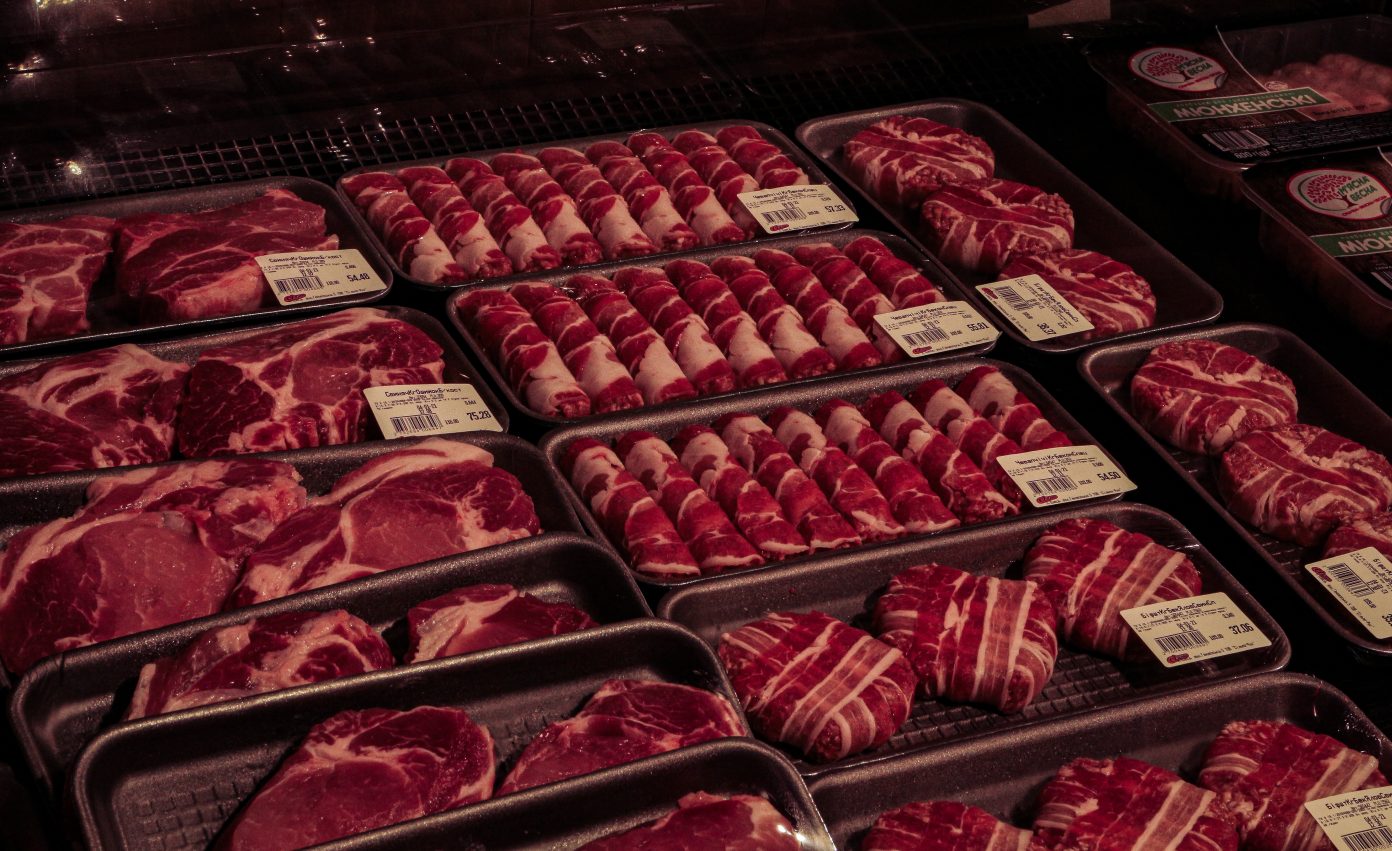News
Health Concerns Over Contamination Of Meat Sold In Supermarkets

World Animal Protection has raised concern about the safety of pork and poultry meat from supermarkets after a recent study found significant bacterial contamination on these products.
The study which was conducted between April and July 2020 saw a total of 187 pork samples and 206 chicken samples collected from branches of six supermarkets in six selected counties of Kenya.
The counties are Nairobi, Kisumu, Nakuru, Laikipia, Uasin Gishu and Nyeri.
The samples were analysed for bacterial growth and sensitivity to World Health Organization (WHO) recognized antibiotics at the Center for Microbiology Research in Kenya Medical Research Institute (KEMRI), Nairobi.
Get breaking news on your Mobile as-it-happens. SMS ‘NEWS’ to 20153
The results showed a high prevalence of bacterial contaminants in pork and chicken.
184 pork samples accounting for 98.4 % and 199 chicken meat samples accounting for 96.6% contaminated.
The most common contaminant was E. coli bacteria however known enteric pathogens such as Salmonella and Shigella were also isolated. While majority of the contaminants were not necessarily harmful, the presence of Salmonella and Shigella was concerning as there is likelihood of an animal origin from the farm level.
“Studies have shown that poor animal welfare and stress factors have the potential of increasing the susceptibility of farm animals to diseases hence increasing the use of antimicrobials to control these infections while reducing the microbiological safety of animal products and threatening public health.” Said Dr. Victor Yamo of World Animal Protection.
In the study, 38.5% of the 525 bacterial isolates examined recorded resistance to more than three antibiotics (Multi-drug resistant organisms or Superbugs).
This resistance was also noted for high priority antibiotics on the WHO list such as Ciprofloxacin, Erythromycin, Vancomycin, Cefoxatime and Cefepime.
This is a worrying trend being driven by farmers who are giving antibiotics to their livestock to prevent them from getting sick due to low animal welfare provisions in their farms.
A study done in Kenya by the Global Antibiotic Resistance Partnership (GARP) reported that up to 70% of the imported antibiotics are given to chickens, pigs and cows.
“World Animal Protection believes that responsible use of antibiotics in farm animals is essential in tackling the growing Antimicrobial Resistance. This should be done by putting proper policies and measures aimed at reducing the use of antibiotics on animals by promoting higher welfare production systems in the livestock industry. Such systems should include good housing conditions, health care and the promotion of natural animal behaviour. They should also provide for improved management, biosecurity, hygiene, sanitation, optimal animal husbandry, nutrition, genetics and use of preventive methods such as vaccination, leading to improved animal health and welfare.”
“By eliminating the worst methods and practices of animal production such as the use of cages, crowded or barren conditions, poorly ventilated production units with wet beddings and inadequate feeding systems, animals shall be less stressed hence less likely to suffer illness, leading to less dependency on antibiotics. High welfare production standards are not only good for animals but also for people – their health, livelihoods and businesses.” Dr. Yamo concludes.
World Animal Protection is calling on the following key stakeholders to take urgent action in addressing the superbug crisis:
1. Retailers / Supermarkets
There is a need to strengthen their food procurement policies in order to discourage animals raised in inhumane production systems from accessing their outlets. There is also need to ensure that their suppliers of livestock products commit to using antibiotics responsibly on their farms.
2. Livestock producers/farmers
To move to higher welfare production systems that caters for the fundamental freedoms of the animals and commit to responsible and prudent use of antibiotics in the production system.
3. Government
To strengthen policies and regulatory framework in livestock farming to allow for improved animal welfare and responsible antibiotic use of antibiotics. They should also enforce the available laws especially those that control the access and availability of antibiotics.
4. Consumers
To use their purchasing power to pressure retailers and supermarkets to source and retail products from high welfare production systems. They should also commit to better animal welfare by joining our campaigns to transform global food systems.
Kenya Insights allows guest blogging, if you want to be published on Kenya’s most authoritative and accurate blog, have an expose, news TIPS, story angles, human interest stories, drop us an email on [email protected] or via Telegram
-

 Politics2 weeks ago
Politics2 weeks agoYour Excellency! How Ida’s New Job Title From Ruto’s Envoy Job Is Likely to Impact Luo Politics Post Raila
-

 Americas5 days ago
Americas5 days agoEpstein Files: Bill Clinton and George Bush Accused Of Raping A Boy In A Yacht Of ‘Ritualistic Sacrifice’
-

 Business7 days ago
Business7 days agoCooking Fuel Firm Koko Collapses After Govt Blocks Sh23bn Carbon Deal
-

 Business6 days ago
Business6 days agoABSA BANK IN CRISIS: How Internal Rot and Client Betrayals Have Exposed Kenya’s Banking Giant
-

 News2 weeks ago
News2 weeks agoKenya Stares At Health Catastrophe As US Abandons WHO, Threatens Billions In Disease Fighting Programmes
-

 Business2 weeks ago
Business2 weeks agoMinnesota Fraud, Rice Saga, Medical Equipment Deal: Why BBS Mall Owner Abdiweli Hassan is Becoming The Face of Controversial Somali Businessman in Nairobi
-

 Business3 days ago
Business3 days agoKRA Can Now Tax Unexplained Bank Deposits
-

 Investigations1 week ago
Investigations1 week agoPaul Ndung’u Sues SportPesa for Sh348 Million in UK Court, Accuses Safaricom Boss of Sh2.3 Billion Conspiracy














